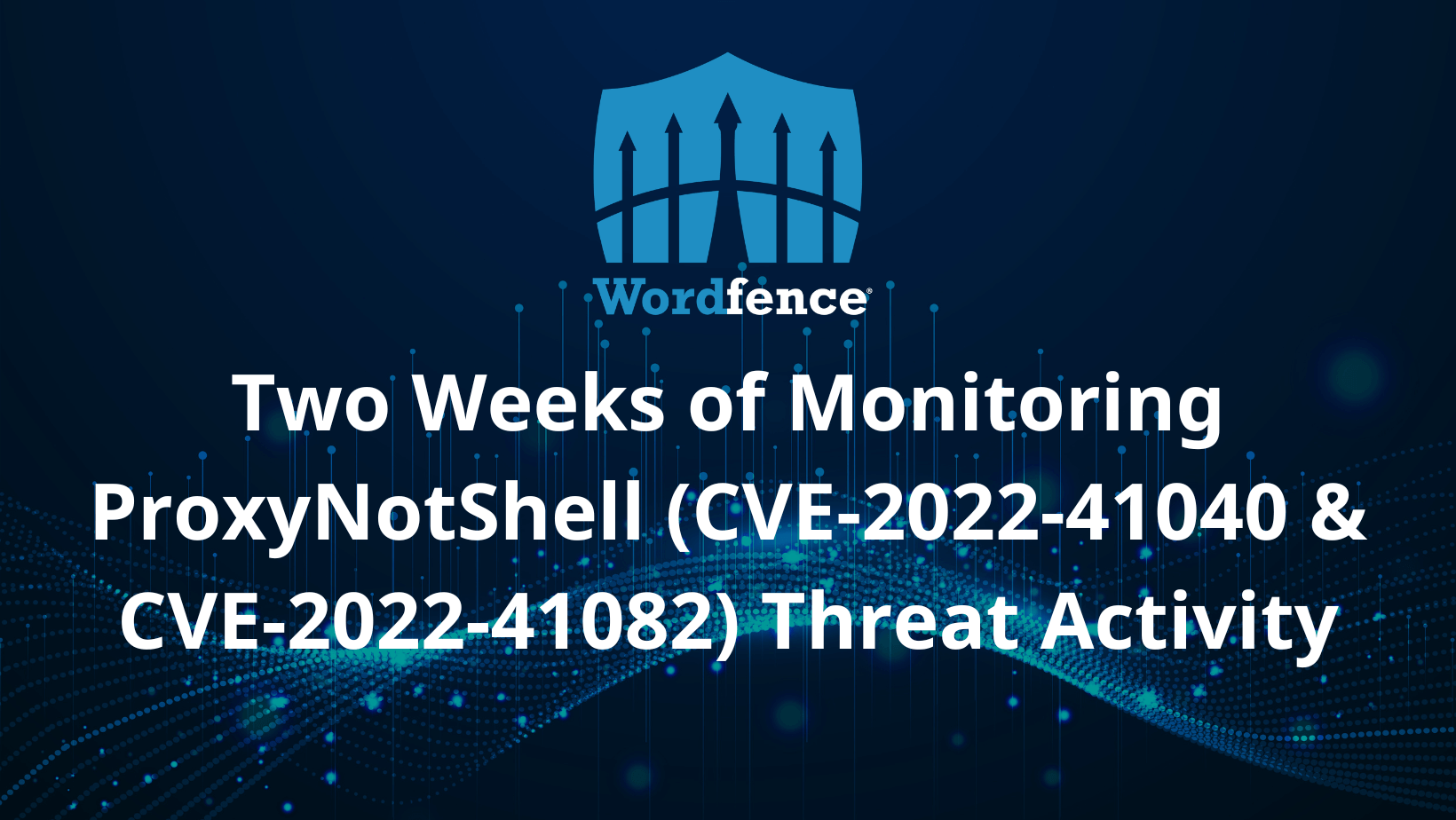This site uses cookies in accordance with our Privacy Policy.
Wordfence Research and News
Category: Research

Two Weeks of Monitoring ProxyNotShell (CVE-2022-41040 & CVE-2022-41082) Threat Activity
The Wordfence Threat Intelligence team has been monitoring exploit attempts targeting two zero-day vulnerabilities in Microsoft Exchange Server tracked as CVE-2022-41040 and CVE-2022-41082, collectively known as ProxyNotShell.

Threat Advisory: CVE-2022-40684 Fortinet Appliance Auth bypass
This morning, the Wordfence Threat Intelligence team began tracking exploit attempts targeting CVE-2022-40684 on our network of over 4 million protected websites.

Cross-Site Request Forgery Vulnerability Patched in Ecwid Ecommerce Shopping Cart Plugin
On June 24, 2022, the Wordfence Threat Intelligence team initiated the responsible disclosure process for a Cross-Site Request Forgery vulnerability we discovered in Ecwid Ecommerce Shopping Cart, a WordPress plugin installed on over 30,000 sites.

High Severity Vulnerability Patched in Download Manager Plugin
On July 8, 2022 the Wordfence Threat Intelligence team initiated the responsible disclosure process for a vulnerability we discovered in “Download Manager,” a WordPress plugin that is installed on over 100,000 sites.

Analyzing Attack Data and Trends Targeting Log4J
The Log4j vulnerability, initially reported in November 2021, has affected millions of devices and applications around the world.

Top Five Attacking IPs This Month: Their Locations May Not Be Where You Think
At Wordfence, we see large amounts of threat actor data, and often that data tells unexpected stories.

Cross-Site Scripting Vulnerability In Download Manager Plugin
On May 30, 2022, Security Researcher Rafie Muhammad reported a reflected Cross-Site Scripting (XSS) vulnerability to us that they discovered in Download Manager, a WordPress plugin installed on over 100,000 sites.

Critical Privilege Escalation Vulnerability in Jupiter and JupiterX Premium Themes
On April 5, 2022, the Wordfence Threat Intelligence team initiated the responsible disclosure process for a set of vulnerabilities in the Jupiter and JupiterX Premium themes and the required JupiterX Core companion plugin for WordPress, which included a critical privilege escalation vulnerability that allowed any user to become an administrator.

PHP Object Injection Vulnerability in Booking Calendar Plugin
On April 18, 2022, the Wordfence Threat Intelligence team initiated the responsible disclosure process for an Object Injection vulnerability in the Booking Calendar plugin for WordPress, which has over 60,000 installations.

Critical Remote Code Execution Vulnerability in Elementor
On March 29, 2022, the Wordfence Threat Intelligence team initiated the disclosure process for a critical vulnerability in the Elementor plugin that allowed any authenticated user to upload arbitrary PHP code.
